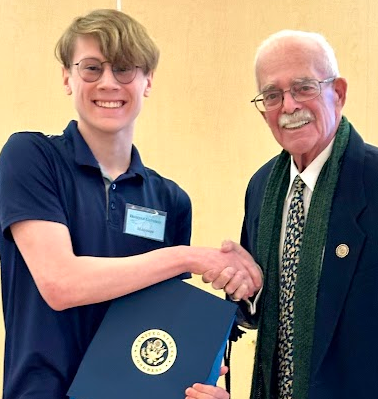According to Newsnation, 2023 was the warmest year recorded in the history of our planet. In the past few years, climate change has been brought to the public’s attention with an increasing sense of urgency; the earth is simply too hot, and at the rate it’s going, it won’t be cooling down anytime soon. For young, broke and seemingly uninfluential high school students, making a change can feel like a daunting task. However, it may be more attainable than one might think.
Ramsey Warner (’26) is using her resources as a student to make that change. Students may have seen the composting posters hung around the halls or noticed the new green bins strategically placed throughout the cafeteria; both are her doing. Warner began her composting initiative earlier this year with the goal of turning what otherwise would be waste into something that can help our environment.
“The Compost Project is an effort to transfer the food waste and trays disposed in the cafeteria from going to landfills to going to a worthwhile use: being turned into compost,” Warner said. “In general, in the US, we have a big problem with soil degradation which makes our agriculture less efficient and nutritious, so composting is a really good way to help the issue.”
Along with generally helping the environment, Warner’s program has a focus on local farms that brings an extra meaningful touch to her purpose. By working with an organization called Compost Crew, all of the compost that Madison produces is delivered to farms around the area, such as Butler’s Orchard and One Acre Farm. In taking a few extra minutes to separate trash from compost, students are not only supporting the environment, but actively giving back to the local agriculture community.
Compositing is fairly straightforward. However, there are a few important restrictions to consider when deciding what to compost and what to toss: no wax-coated paper like milk cartons, no plastic, metal (e.g. plastic bottles or containers, cans), or any other non-food material can be placed in the green bins (found in the cafeteria every Thursday). However, any food scraps and lunch trays are good to be composted.
“It feels really rewarding when people take the time to use the bin or show interest in what the project’s doing, because who doesn’t want to help out local farms,” Warner said. “I hope everyone on Thursdays when you see a green bin, checks if there’s anything they can put in. It only takes a few seconds to ultimately benefit our local farms!”



